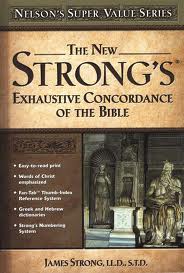Bibles
 Which is the best Bible to use? People ask that question. And there are a lot of different answers. Most of the answers are based on personal preference, and not a whole lot of research and study. I am talking about real Bible study. Not some fool who dedicates his life to go through Bibles, compare them to their favorite Bible, and look for every little difference. Let’s face it, Bibles are translations. Those translations are done by people, and people make mistakes. Let’s look at this from a spiritual side. In other words, how does Heaven look at all those different Bibles? Sure, every translation has at least one mistake. Maybe more. What does that teach us. Humans are not always connected with God when we go about our daily routine. For one things, most popular Bibles were translated by committees. That shows how one person couldn’t do the job themselves. It also shows a degree of mistrust. Angels in Heaven see all of that, and look at every translation as a work of men, with mistakes, but God still loves them.
Which is the best Bible to use? People ask that question. And there are a lot of different answers. Most of the answers are based on personal preference, and not a whole lot of research and study. I am talking about real Bible study. Not some fool who dedicates his life to go through Bibles, compare them to their favorite Bible, and look for every little difference. Let’s face it, Bibles are translations. Those translations are done by people, and people make mistakes. Let’s look at this from a spiritual side. In other words, how does Heaven look at all those different Bibles? Sure, every translation has at least one mistake. Maybe more. What does that teach us. Humans are not always connected with God when we go about our daily routine. For one things, most popular Bibles were translated by committees. That shows how one person couldn’t do the job themselves. It also shows a degree of mistrust. Angels in Heaven see all of that, and look at every translation as a work of men, with mistakes, but God still loves them.
Lets’ face it, this world has just about 300 different languages, and over 1000 dialectics. That means certain words have different meanings in different cultures. Okay, you translate a Bible that covers all those ranges. That would be impossible. At least for us. But wait, God not only saw that coming, but worked on a book for this world, and a way to translate it before God made all those languages. That’s right, God made all those languages. Men created all those dialectics. That is to say, changes and alterations to the meaning of certain words. I’ve covered some of the most profound examples in some of my books. A series of scattered studies showing how the meaning of certain words has been altered over the years. One example is the Spiritual gifts. Look up the original Greek meaning on some of those gifts and I can ensure you are in for a surprise. Most of the meaning for each of those spiritual gifts is missing in this society. You’ll find how you are only being spoon fed half the story.
God has a full time translator He networks with. That translator is called the Holy Spirit. No one can do a better job of translating the Bible than the Holy Spirit. No one. He was there when the original copy of the Bible was written in Heaven. And the Holy Spirit has each word memorized, knows each intended meaning, and is perfectly reliable. Why worry about which Bible transaction you are reading? And why worry about what transaction other people prefer to read? That is just wrong.
What makes me an expert in Bible Translations? I’m not really an expert. I’m just an ordinary guy who has done thousands of Bibles Studies, using different Bibles, using different approaches, and I enjoy teaching people, and sharing what I learned. I don’t know Greek or Hebrew, and I only know a few of the $40 words theologians like to throw around. I have studied with groups of theologians, and I found I have a gift of explain the process of Bible Study in simple terms. I’ve had theologians with degrees coming out of their ears listen to me explain a Bible Study process and say, “oh that’s what that is.” People can get so wrapped up in human terms, they miss the reasoning behind certain steps and procedures.
I have written about 25 books. Most of them are featured on this site. You can search the site for a subject that interests you, take a look at a study or two, and see how I explain the process I used. I like to list the steps used in each process so people can use that study method in their own studies. But remember, the Holy Spirit is the first and most important step in every Bible Study. I also discuss different ways people communicate with the Holy Spirit. Enough about me. Let’s look at some of the features you want to consider in a Bible, and then some popular Bible translations.
What to Look for in a Bible
I have to first ask, how are you using the Bible? Are you putting a Bible on your smart phone, on your computer, or a printed Bible? I’ll cover apps for smart phones and Bible computer programs in another article. This article lists only a few suggestions on what to look for in a Bible. Most Bible smart phone apps come with features such as a Concordance, search features, a choice of free Bibles to download, and premium Bibles you can purchase. Computer Bible programs come with those same features, and a lot more features. It is much easier and quicker to copy, paste, bookmark, search, and do other tasks on a Bible computer program than a smart phone Bible application. I prefer a good computer Bible Study program and use the smart phone Bible app for reference. Since most people are looking to purchase a printed Bible, I will concentrate this article on printed Bibles.
Bible Main Features
 The Main feature to look for in a Bible is a Concordance. A good Bible has a good Concordance. There are a number of transactions to choose from. A Concordance is about four times the size of a Bible, and contains every word in the Bible translation with the original Hebrew or Greek definition of that word. You can look up a word in a Concordance, read the Hebrew or Greek definition for that word, and also see how that word was used in other verses. The King James Version may be the most popular Bible with a Concordance. If you study with the King James Version, you want to buy a good Strong’s Concordance. Many smart phone Bible apps, and most computer Bible Study programs come with the KJV and the Strong’s Concordance installed with the initial download.
The Main feature to look for in a Bible is a Concordance. A good Bible has a good Concordance. There are a number of transactions to choose from. A Concordance is about four times the size of a Bible, and contains every word in the Bible translation with the original Hebrew or Greek definition of that word. You can look up a word in a Concordance, read the Hebrew or Greek definition for that word, and also see how that word was used in other verses. The King James Version may be the most popular Bible with a Concordance. If you study with the King James Version, you want to buy a good Strong’s Concordance. Many smart phone Bible apps, and most computer Bible Study programs come with the KJV and the Strong’s Concordance installed with the initial download.
With printed Bibles there are regular, everyday Bibles, and Study Bibles with different features. Not all Study Bibles are the same. Not even from the same translation. Some Study Bibles have a chain reference in the middle or bottom of the page. A chain reference can be a good tool, but be forewarned, the chain references can be slanted towards the denomination that published that particular Bible.
Some printed Study Bibles come with a condensed Concordance in the back. That condensed Concordance may be useful to a degree, but it is never a substitute for a real Concordance.
Leather covers may be the best. They usually have better binding, and wear much better. You do plan on opening and paging through that Bible. The binding is important, and if you are going to invest a large sum of money on a Bible, read a few articles on bindings. Paperback Bibles have their use. If you want to pick up a few translations, some may be paperbacks.
Look for a printed Bible with enough room on the side, top, or bottom to write notes. I know you will want to jot down a few notes from time to time. You may want to put a few sticky notes on the inside cover for notes.
A good printed Bible normally goes hand in hand with a good Bible cover or case. You can look on line for those, or visit your local Christian Book Store. You can bring in your Bible to make sure it fits. Look for a few places where you can store a few pens and highlighters. They make special highlighters for Bibles that will not bleed through the pages, and has a really fine point on one end. A fine tip pen is also a necessity. And don’t forget that note pad.
Ribbon book marks are also a good idea with Printed Bibles. A Bible may come with one or a few. Christian book stores also sell ribbons you can slide in the spline of your Bible. You may want to buy a set of ribbons for your Concordance.
Hard cover Concordances are best. Look for one with the alphabet on the ends of the pages. You will find that alphabet a big help. Now lets look at a few popular Bible Translations.
King James Version
The King James Version of the Bible may be the all time best selling translation. I call it the avenger series based on the fact there are some people stuck on the KJV, and will never accept any other translation. I guess that is their loss. Is the KJV the infallible translation given from Heaven? I’d like to think all Bible translations were some how, or to some degree divinely influenced, or guided. Let’s face it, the KJV was translated by committee. Why? It was a monumental task, and when the KJV was being translated, the thought was, a number of people can keep an eye on other people and reduce the chance of error. Of course there are going to be errors in any translation. God saw that, and that is why God used the simple concept of repetition when He inspired each book in the Bible. God used a unique style of repetition in every book in the Bible. Why repeat the same word a number of time? The answer is two fold. People learn through repetition. A good teacher repeats important details and phrases. Also, when words are repeated, whoever is doing the translation has a better chance of getting the word correctly translated sooner or later. When key words are used in different sentences, in a number of different ways, that gives translators a number of opportunities to study and restudy the original meanings of those words.
The KJV may be difficult for some people to read. The one thing I like about the KJV is, when they translated a particular word one way, they used that English word for that Hebrew or Greek word though out the entire Old or New Testament. That makes studying with a Concordance much easier, and much more reliable. That is what sets the KJV above and beyond any other Bible translation. The KJV is by far one of the best Study Bibles available.
New King James Version
Some people who like the KJV have switched over to the NKJV. The NKJV replaced the Old English thees and thous with modern English words, and eliminated the th’s at the end of so many words. There are a number of different translations along the lines of the NKJV. Some of them are the King James 2000, the King James 21, the Modern King James Version, and other such Bible translations along the similar lines. All those Bibles are grouped into what is called literal translations.
Just a side note here. I just tried a new Bible computer program, downloaded the KJV and the Concordance, and looked at the KJV. That particular version was more like a modern translation of the KJV. I am wondering of some computer people are substituting one translation for another because they think people really don’t want the Old English version Just a thought.
Literal or Dynamic Translations
Literal translations of the Bible make an attempt to look at each Hebrew and Greek word and translate it from one of the original definitions for that word. You may not know this but, many Hebrew and Greek words have more than one meaning. Look at one example.
Make thee an ark of gopher wood; rooms shalt thou make in the ark, and shalt pitch it within and without with pitch. (Genesis 6:14 [KJV])
First of all look at how the word pitch has been repeated. That is a clue to look at little deeper. Look at what we find when we look at the definition of pitch in the Concordance.
PITCH 3722 kaphar kaw-far’ a primitive root; to cover (specifically with bitumen); figuratively, to expiate or condone, to placate or cancel:– appease, make (an atonement, cleanse, disannul, forgive, be merciful, pacify, pardon, purge (away), put off, (make) reconcile(-liation).
We find two meanings, bitumen which is pitch or tar pitch and atonement. 3722 is the Strong’s number. When we look anywhere else in the Bible we find that the Hebrew word kaphar has been translated to the English word atonement. That is one of the many surprises in store for you when you study the Bible.
Literal translations do take the sentence structure and story into consideration when translating words from Hebrew and Greek into English. Literal translations do attempt to stick to the story line without omitting any words, and adding words to suit the English sentence structure. That is why some literal translations have words in italics, or they may use a lighter color of gray, or parentheses to indicate that word was added by translators to finish the flow of the English sentence. Let’s face it, English sentence structure is far different that Hebrew and Greek sentence structure. Something had to be done.
There are more literal translations than I care to mention here. The main thing to consider in a literal translation is personal preference. I’ve noticed some Bibles will use the word God or Lord. Some will use all capital letters for LORD when a certain Hebrew work is used. Other translations will use other names like Jehovah, YAHWEH, the Lord of Heaven’s armies, and other words and terms to describe God. This can be a hang up for some people. I suggest you page through translations and choose one that fits your preference.
Dynamic Bible translations take the entire story into consideration. Most translations do not add or subtract from the original words, but use the original sentence structure and story to translate individual words. There is much more behind literal and dynamic translations and you can study more on your own if you wish.
Dynamic translations are easier to read and blend more with the modern English language. More on dynamic translations later.
NET Bible
The NET Bible is just that, a Bible that was translated by a group of people over the Internet. You can read more on that if you wish. The main feature of the NET Bible is, there are plenty of verses that could be translated into English in a number of ways. That is where the NET excels. When one of those verses or words pops up, they inserted a reference number that takes you to a comment. It may be one of the best study Bibles, but with all those numbers, it can be distracting. There are versions with and without the reference numbers. It is well worth looking into a NET Bible of you are a serious student of scripture.
New Living Translation
At this time, the NLT is my Bible of choice. The translation easily flows into any book, study, or story without having to shift gears from one style of writing to another. It is not flawless, and I’ve found a number of verses where I had to choose a more literal translation to use in a book or study. At times the NLT does add more depth to the story at hand. On the other side of the coin, verses can be so messed up, the translations often omits some major key words and misses the point. A few of those happened to be some of my favorite verses. I read them. Reread them and asked, “what happened to that word that used to be there?” Sure enough, the modern translation shifted to a more modern word or phrase as a substitute. Same concept was still there, but if you are like me, that good old traditional word you remember should not be substituted.
New International Version
I tried the NIV for more than a year and started to notice a few missing details. It seems the NIV omits a lot of information about the Holy Spirit. I’m not sure if that was intentional or a severe over sight. The NIV is popular and one of the best selling modern day translations. Like all Bible translations, it has its good and bad points. It may be a good Bible to pick up and read, but like all dynamic versions, I would not rely on it as my only source. As with all dynamic versions, they should be used or compared to a good literal translation.
Good News Bible
I used the Good News Bible for a number of years, and thought it was one of the best modern translations on the market. It is set on modern English, a sort of blend between a literal and dynamic translation, and easy to read. Flow in sentence structure is well done. I knre a head elder who wrote a book using the GNB, and the flow between his writing and the GNB was a good combination.
Some people may point out the GNB is a Catholic translation. That may be true, but what difference does that make? Most literal translations have a Catholic influence. Every denominations have their people who are dedicated to God, and people dedicated to the institution. Who are we to judge? As for that fact, when you do look at a number of translations, you will find that many Bibles follow a pattern. Some denominations may stress tithing, and place a special emphasis on that subject in their translation. Some denominations don’t believe in the Holy Spirit, and place their particular spin on the subject when it comes up in scripture. Other churches believe the church is in control of spiritual gifts, and make a few substitutions to reinforce their view on that point. We do live on earth and that is what we should expect to find. Many Bible translations have a heavy denominational influence. The key is, when you study with the Spirit, even a messed up Bible translation will bring up details you never saw before. And the Holy Spirit is the only one who can guide you back to the original concept behind each and every verse in the Bible. Take it from me. A single verse is only the beginning. Paul may have recorded some good ideas, but what influenced Paul to write about that particular subject? What influenced Paul, or any of the New Testament writers? Of course Jesus influenced them, and the Old Testament. The Bible proves itself. God never needed any human to defend the Bible. When Paul introduced a subject, something in the Old Testament influenced his thoughts. All we need to so is look back to find that story. And what will we find? Much greater detail on that subject than Paul wrote about. Paul may have placed that subject in a new light, but the original story and concept in the Old Testament still stands on its own, and adds major details to the stories, lessons, and concepts in the New Testament. That is one study method I use and teach people how to use. Look up the Old Testament verses that influenced the New Testament writer. In most cases that is not difficult. Paul would write something like, “As Isiah wrote…” Any Bible with a good chain reference will take you to that story in Isaiah.

I can’t cover every translation here, but only wanted to leave a few ideas, tips, and maybe a few things you can learn. Other articles on this site provide great information on different ways you can study the Bible. Check out a few of the articles posted here. And if you want to share something about a favorite version of the Bible you use, leave a comment.
